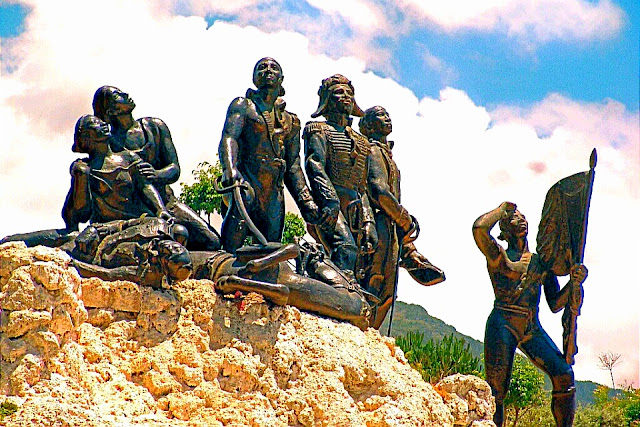Camps cleared in Haiti as hurricane season starts
AP Photo - A municipal worker carries away a tent used by a family during an eviction at a camp for those displaced by the 2010 earthquake, in Port-au-Prince, Haiti, Wednesday, May 25, 2011. City authorities are removing the camp in what they describe as an attempt to clean the area, without offering any resettlement options to residents, according to municipal authorities.
The mayor of a large city in the Haitian capital region has begun clearing out camps set up after last year's earthquake, evicting hundreds of people amid heavy rains and the start of the hurricane season on Wednesday.
Mayor Wilson Jeudy of Delmar city says the settlements - densely packed clusters of wooden shanties and tarps - have become staging areas for robberies, rapes and other crimes. But panicked residents say they have nowhere else to live or seek shelter. The area has seen weeks of punishing rain.
"We don't know where we're going to go," said Elise Antoine, a 27-year-old who has been living on the grounds of Ecole Foyer Saint Famille since shortly after the January 2010 earthquake.
Jeudy ordered police and security guards to clear at least three camps last week in this city at the edge of downtown Port-au-Prince. "We can't give people a public square as a gift to set up tents favorable to gang activity," he said in a radio interview.
The encampments cleared last week were in two public plazas and on the grounds of a Catholic school with several hundred families in each. Guards sliced up tents and tarps and tossed people's belongings aside in early-morning raids, several witnesses told The Associated Press. A dozen people returned hours later to the school, saying they were simply hoping that the mayor wouldn't force them out again.
More evictions are expected.
A spokesman for the mayor, Saby Ketteny, said they will move 250 families from a soccer field and sports center in Delmas so that the public can use it once again.
The earthquake, which left much of the capital in ruins, left about 1.5 million people homeless and an estimated 680,000 are still living in the so-called temporary settlement camps, according to the Haitian government and the United Nations.
A draft of a recent study commissioned by the U.S. government said there are actually no more than 375,000 still on the streets but the State Department said the report has "inconsistencies" and was not ready to be released.
No one disputes that there are tens of thousands of Haitians in need of shelter as the tropical storm season looms. Haiti is particularly vulnerable to flooding because much of the landscape has been stripped of trees and many people live in flood-prone areas. A direct hit by a hurricane on Port-au-Prince is rare because of the mountains that surround the capital but the outer bands of a storm, or even a heavy rain, can be dangerous, particularly with so many people still living under tarps and in simple wooden shanties.
The National Hurricane Center in Miami is predicting that the season that begins on Wednesday will be busier than normal, with as many as 18 named tropical storms, three to six of them major hurricanes.
In preparation, workers cleared drainage canals and removed rubble from schools so they could be used as temporary shelters, said Leonard Doyle, a spokesman for the U.N.'s International Organization for Migration. The United Nations Development Program and the Haitian government have held disaster exercises, said Fenella Frost, chief of UNDP's disaster response unit.
Haitian authorities have also set aside extra emergency supplies including water, blankets and boots in case of widespread flooding, said Daniel-Gerard Rouzier, who has been nominated to be the next prime minister by President Michel Martelly.
"We are gearing up, and hopefully we will be ready in time for the first storm," Rouzier said.
The as-yet-unreleased report prepared for the U.S. Agency for International Development said thousands have moved back into homes that were damaged in the quake because they do not want to live in the encampments.
"People really don't want to live in these exposed tents, so they take risks to live in these dangerous houses," said Kit Miyamoto, an engineer who has evaluated structures in Haiti for governments and private companies since the earthquake.
Private landowners have been evicting people since shortly after the earthquake, but the Delmas evictions are the largest yet by any public entity.
Camp dwellers at Ecole Foyer Saint Famille say their former neighbors moved to other camps or begged to move in with others. A dozen of them stayed because they didn't want to live in an alien neighborhood, so they sleep on muddy scraps of cardboard under a blue tarp as the hurricane season begins.
"This is a situation that makes people cry," Sabida Dorce, a 32-year-old charcoal seller, said as she stood in the mud.





Comments
Post a Comment